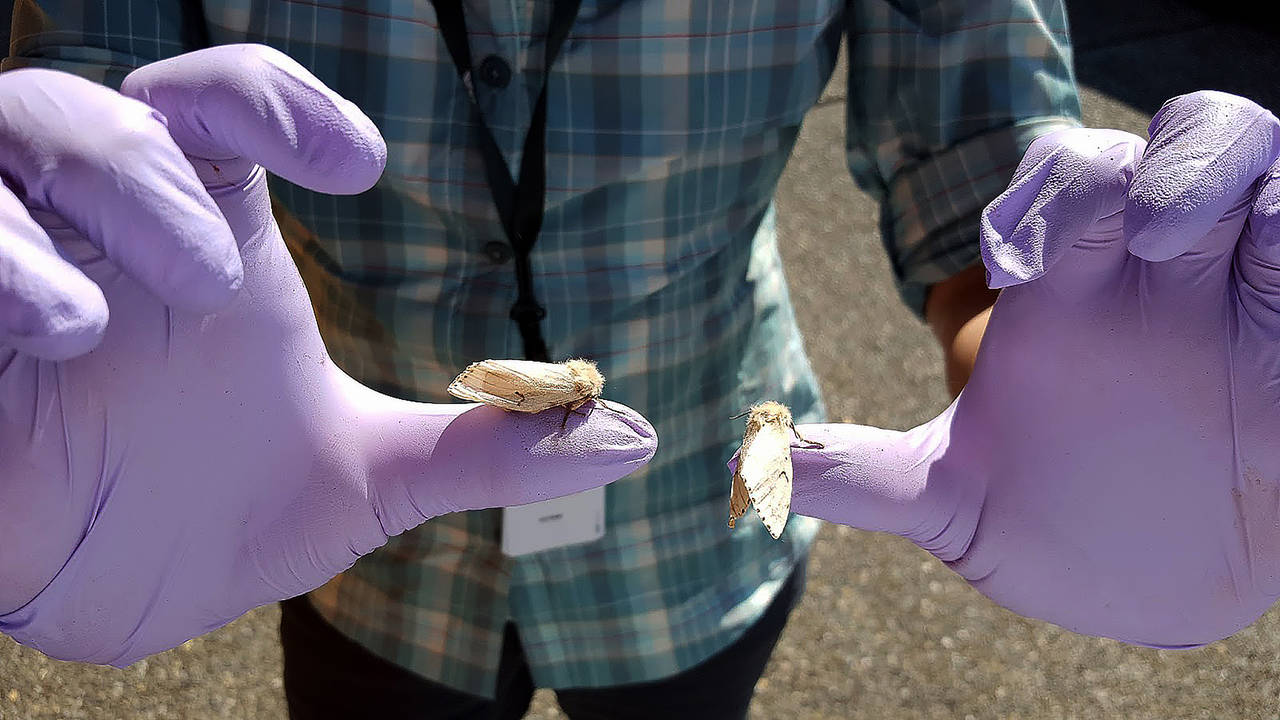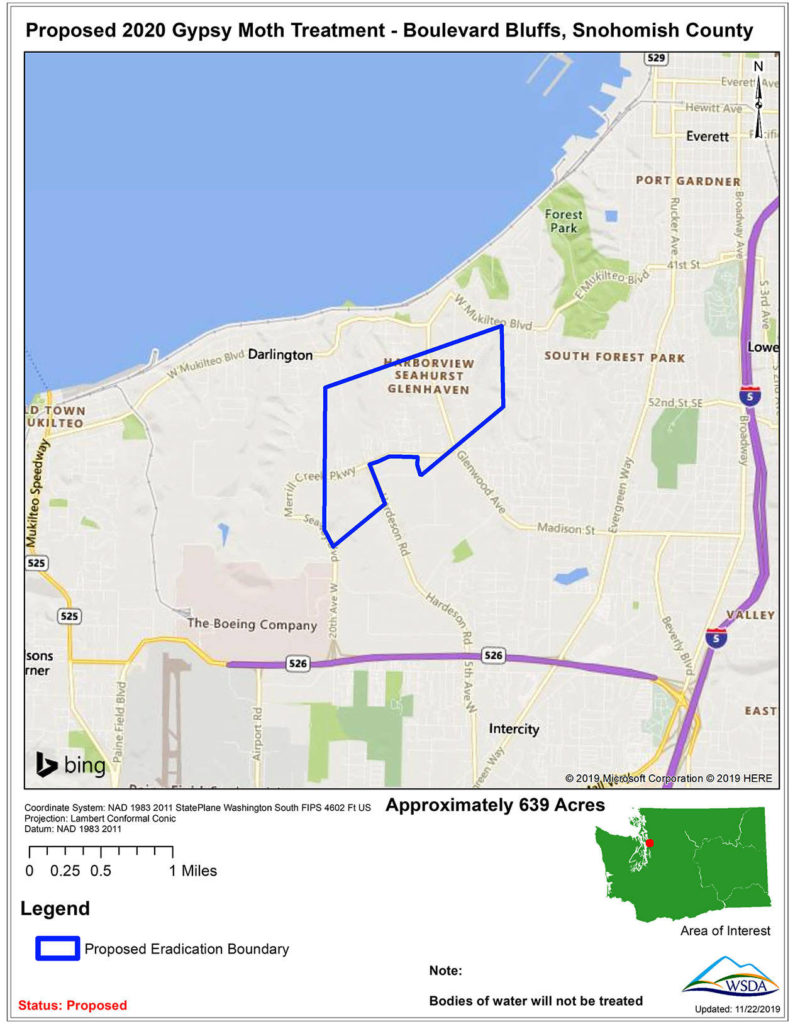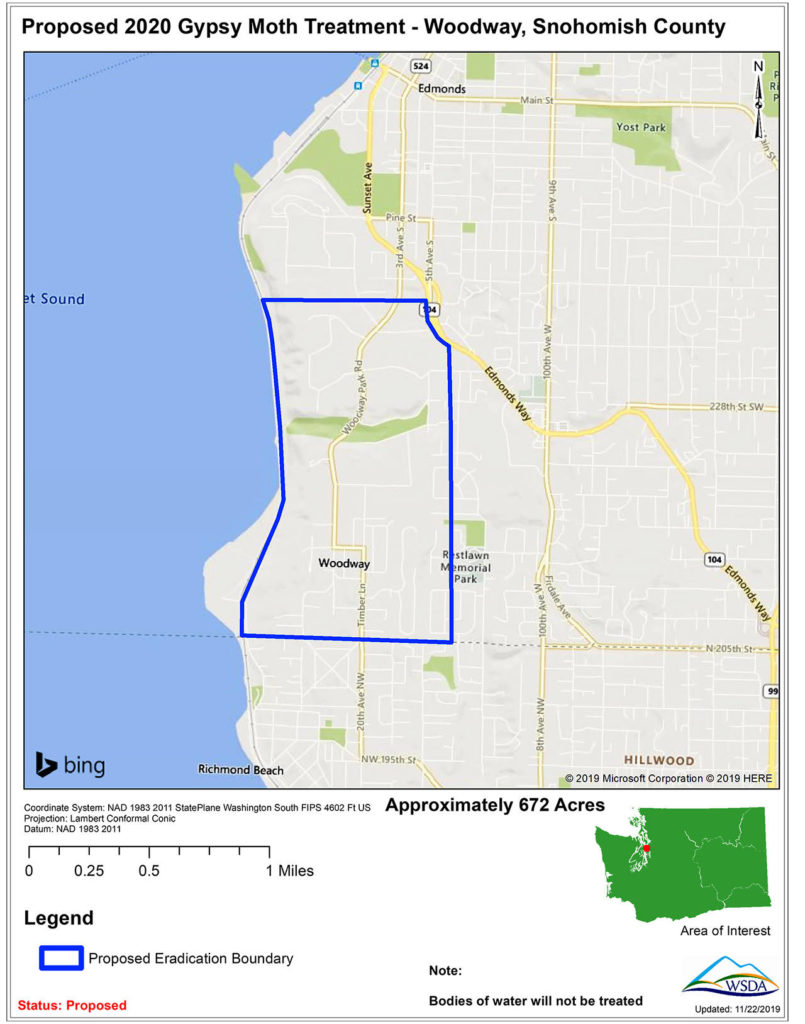WOODWAY — Over 655 gallons of soil bacteria are slated to rain down on parts of Woodway and an Everett neighborhood this week.
The state Department of Agriculture will spray nearly 1,300 acres with an insecticide — dropped from 100 to 200 feet in the air by a plane — to stop an invasive moth species from spreading and gobbling up forest foliage.
The treatment is scheduled for Friday, but department spokesperson Karla Salp said that could change depending on the weather.
The state will send out an update to nearby residents via text, email, Facebook and phone announcement at 5 a.m. Friday before the spraying begins and again when it’s finished.
“Anybody who wants to avoid being sprayed should stay inside,” Salp said.
She also recommends staying indoors for 30 minutes after the treatment is over.
The Woodway spraying could take about 40 minutes, Salp estimates. The Everett treatment in the Boulevard Bluffs neighborhood will take roughly half an hour, barring any technical issues.
The treatments target gypsy moths. They’re native to Asia and can strip entire forests of their leaves.
The first Hokkaido gypsy moth showed up in Woodway last year. It was reportedly the first of that type of moth found in the United States. Moths near the Boulevard Bluffs neighborhood have also tested positive for both European and Asian genetic traits, and the state Department of Agriculture intends to eradicate them.
Their favorite trees are oak, but they feed on up to 500 species.
“They’ll basically eat anything that is around,” Salp said.
Deciduous trees (the ones that drop and regrow their leaves every year) can potentially survive. But repeated defoliation will kill even a deciduous tree.
The Pacific Northwest’s iconic evergreen trees aren’t as resilient to the moths. Once stripped of foliage, the tree dies, Salp said.
A Hokkaido moth could have stowed away on a bulk cargo ship from an infested area across the Pacific Ocean.
The moths are considered the worst forest pest ever to find its way into the country, according to the state. It has defoliated millions of acres of trees and shrubs since first arriving in the United States in 1869.
An insecticide called Bacillus thuringiensis var. kurstaki, or Btk, is used to ward off gypsy moths. It’s approved for use in organic agriculture and won’t impact animals or beneficial insects like bees, according to the state.
The vast majority of what will be sprayed Friday is just water, Salp said. The state plans to use about two quarts of insecticide per acre, an area roughly the size of a football field.
Residents in Woodway and Boulevard Bluffs should close their windows and turn off the AC before spraying begins, Salp said.
Visit agr.wa.gov/gypsymoth for more information on gypsy moths in Washington and to sign up for alerts about this week’s treatments.
Julia-Grace Sanders: 425-339-3439; jgsanders@heraldnet.com.
Talk to us
> Give us your news tips.
> Send us a letter to the editor.
> More Herald contact information.



























